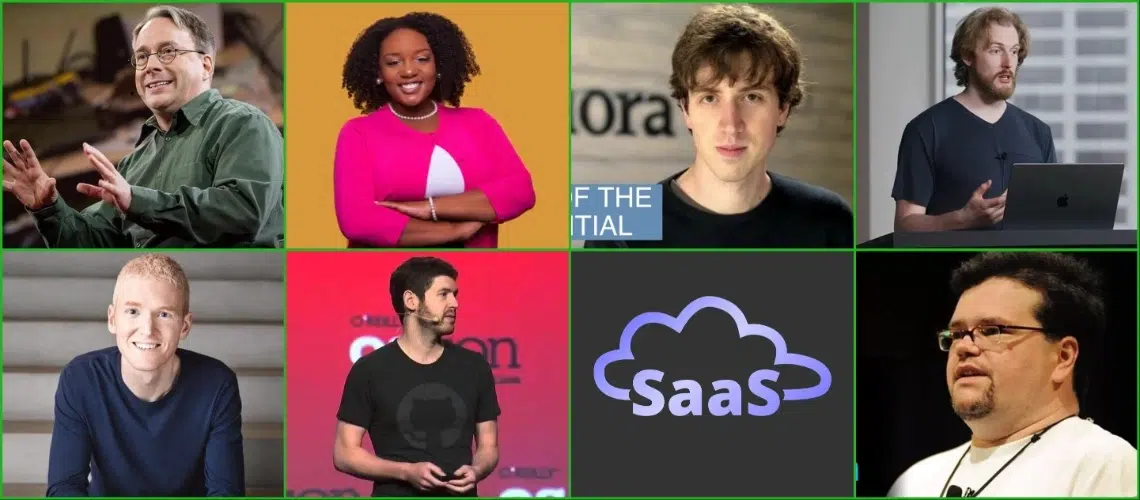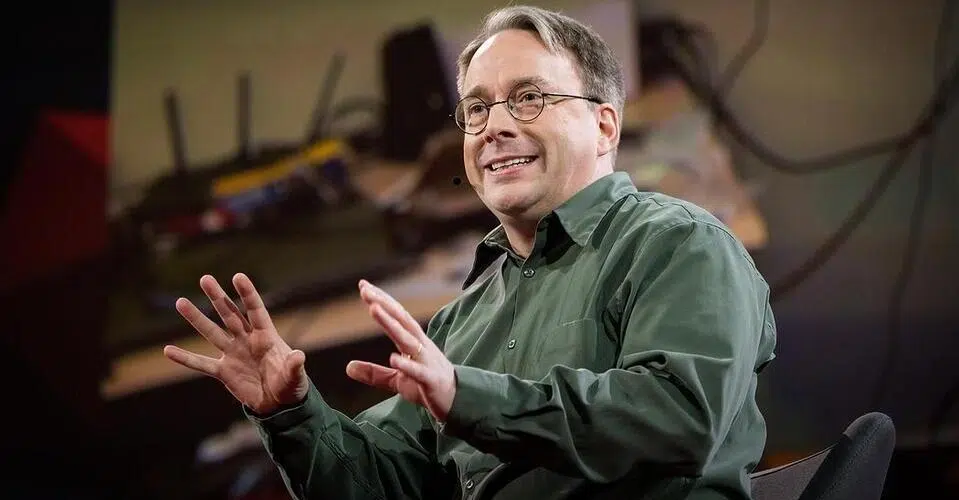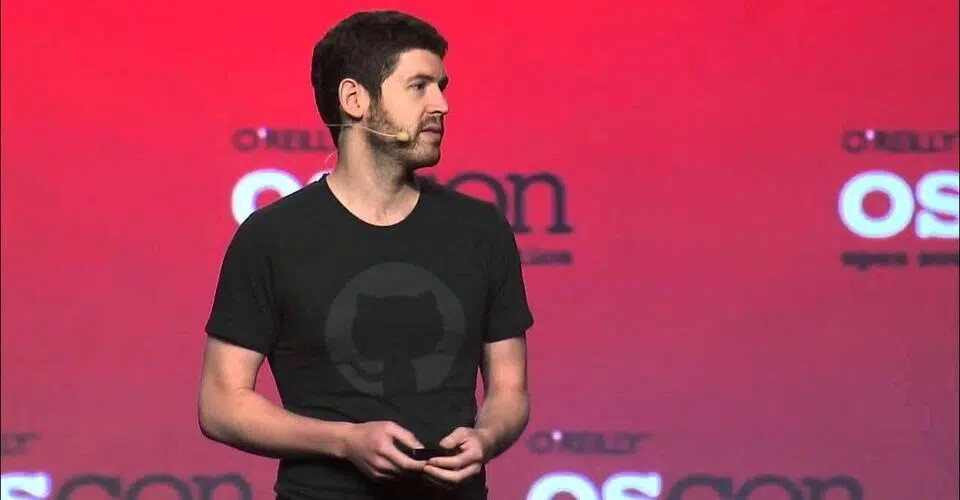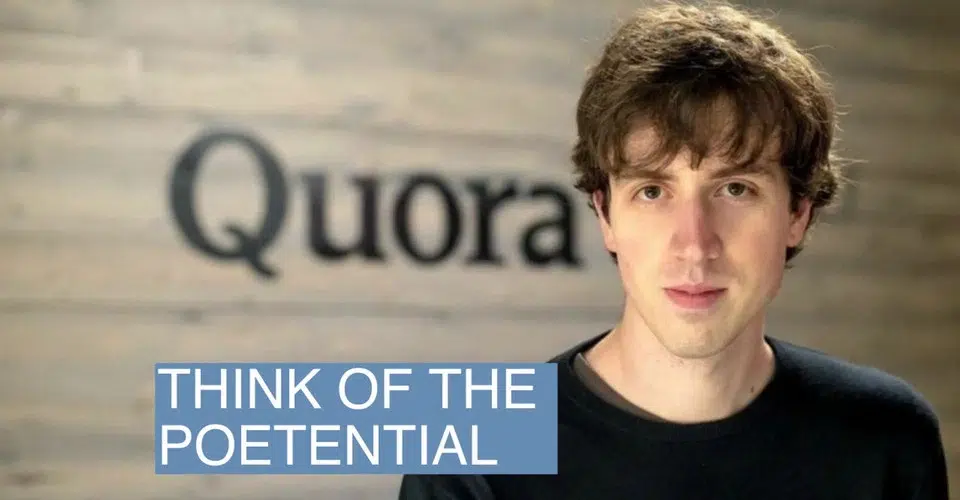Top 20 SaaS Developers for Fast Product Launches

Software as a Service (SaaS) is fueled by the innovation and expertise of top software developers around the globe. These individuals not only write the code behind influential products and platforms, but also lead open-source projects, share knowledge through blogging and talks, and often pioneer new tech paradigms.
Below is the updated and ranked list of the best SaaS developers globally, selected based on their open-source contributions, startup leadership (while still actively coding), influential tech writing/speaking, impactful work at major tech companies, and achievements in international coding competitions:
- Jeff Atwood
- Guido van Rossum
- Cassidy Williams
- Linus Torvalds
- Kent C. Dodds
- Kohsuke Kawaguchi
- Tom Preston-Werner
- Sarah Drasner
- Patrick Collison
- Gergely Orosz
- Addy Osmani
- Rich Harris
- Bjarne Stroustrup
- Miško Hevery
- Adam D’Angelo
- José Valim
- Taylor Otwell
- Angie Jones
- Dries Buytaert
- John Carmack
Now, let’s delve deeper into their remarkable qualifications, achievements, and current activities.
Jeff Atwood

Nationality: American
Jeff Atwood is an American software developer, writer, and entrepreneur who co-founded Stack Overflow – the Q&A platform that transformed how developers share knowledge online.
Before that, Jeff was known for his influential blog “Coding Horror,” started in 2004, where his humorous and insightful posts on programming best practices earned him a massive following among engineers. In 2008, he teamed up with Joel Spolsky to create Stack Overflow, and as a founding developer he wrote much of the early code (in C#/.NET) and shaped its community-driven ethos; this platform has arguably become one of the most important resources for developers in the SaaS era. Jeff later co-founded Discourse in 2013, an open-source forum software, where he continued to contribute code and promote civilized online discussion. Though he’s less in the day-to-day spotlight now (having stepped back from active roles), Atwood’s presence persists via his blog and Twitter where he engages on tech topics and developer culture.
By weighting coding ability (building two major platforms), contributions to open source, influence through writing, and community visibility, Jeff has solidified his standing as a top developer voice whose work underpins how dev teams collaborate and learn.
- LinkedIn: Jeff Atwood
- X (Twitter): @codinghorror
- GitHub: coding-horror
- Website/Blog: codinghorror.com
Guido van Rossum
Nationality: Dutch
Guido is the Dutch creator of the Python programming language, a tool now omnipresent in web services, data science, and education.
As Python’s “Benevolent Dictator For Life” (BDFL) until 2018, he guided its growth for over 30 years – emphasizing code readability and a supportive community – making Python one of the world’s most popular languages. After a brief retirement, Guido returned to coding as a Distinguished Engineer at Microsoft in 2020, where he focuses on improving Python’s performance and usability (e.g., guiding efforts for a faster CPython). His major achievements include developing Python’s clear syntax and core philosophy, which have lowered the barrier to entry for new programmers.
Van Rossum also remains active in the community through discussions and occasional conference appearances. His balanced influence – from writing core code to engaging with developers – cements his legacy as a humble yet impactful tech icon in the SaaS ecosystem.
- LinkedIn: Guido van Rossum
- X (Twitter): @gvanrossum
- GitHub: gvanrossum
Cassidy Williams
Being a developer isn’t about knowing everything—it’s about knowing how to find out anything.
Nationality: American
Cassidy Williams is a developer turned content creator and CTO who has built a huge following by making software development fun and accessible. She’s held engineering and Developer Experience roles at startups like Venmo, CodePen, Netlify, and Amazon, but many know her for her humorous tech videos, memes, and live coding streams that demystify the life of a coder.
Cassidy leverages platforms like Twitter (where she’s a must-follow for her jokes and tips), TikTok, newsletters, and podcasts to reach developers outside of traditional documentation. In 2022, she became CTO of Contenda, a company using AI to repurpose content, where she still codes while shaping product direction. Cassidy’s influence on the SaaS world comes from inspiring the next generation of developers – she runs cohort-based courses, has spoken at dozens of events, and frequently mentors newcomers, especially women in tech.
Additionally, she created projects like “TwilioQuest” (a coding game for learning APIs) and is active in open source (e.g., React frameworks like Remix). By blending entertainment with education, Cassidy has lowered the barrier to entry in software, and in doing so, has indirectly impacted many SaaS teams who have onboarded engineers she’s inspired or taught.
- LinkedIn: Cassidy Williams
- X (Twitter): @cassidoo
- GitHub: cassidoo
- Website/Blog: cassidoo.co
Linus Torvalds

Nationality: Finnish
Linus is the Finnish-born creator of the Linux kernel and Git, two technologies that underpin much of the modern software world (including countless SaaS platforms).
He wrote the first Linux kernel in 1991 as a student and has since overseen its growth into a global open-source project that runs on billions of devices. Torvalds also developed Git in 2005 to manage Linux’s source code, inadvertently revolutionizing version control for all developers. Today, he continues to lead Linux development as a Fellow at the Linux Foundation, merging code from thousands of contributors and setting technical direction. Renowned for his pragmatic coding prowess and candid communication style on mailing lists, Linus remains one of the most influential programmers in history – a hands-on architect whose work enables the cloud services and infrastructure that SaaS depends on.
- LinkedIn: Linus Torvalds
- X (Twitter): @Linus__Torvalds
- GitHub: torvalds
Kent C. Dodds
Nationality: American
Kent C. Dodds is a widely respected educator and open-source contributor in the web development community, especially known for his work in JavaScript testing and tooling.
A former engineer at PayPal, Kent created Testing Library (various libraries for testing React, DOM, etc.), which promote a user-centric approach to testing and have become the default in many SPA projects. He’s built numerous other OSS packages (like Downshift for accessible React UI) but perhaps is even more famous for teaching: Kent has taught hundreds of thousands of developers through his blogs, Egghead videos, and his own courses (EpicReact.dev).
While Kent’s day-to-day is now focused on training developers (he codes live on streams and maintains example repos), his influence on SaaS teams is clear – better testing practices, more accessible UIs, and well-trained engineers building more reliable products thanks to his guidance.
- LinkedIn: Kent C. Dodds
- X (Twitter): @kentcdodds
- GitHub: kentcdodds
- Website/Blog: kentcdodds.com
Kohsuke Kawaguchi
Nationality: Japanese
Kohsuke Kawaguchi is the creator of Jenkins (originally Hudson), the open-source automation server that essentially pioneered continuous integration (CI) in software teams. He developed Hudson in 2004 as a Sun Microsystems engineer “who got tired of breaking the build,” and it evolved into Jenkins – the world’s most popular CI/CD system, used by millions of developers to build and deploy software.
Kawaguchi’s contribution made practices like automated testing and continuous delivery a standard part of SaaS development workflows. He didn’t just write the initial code; he nurtured Jenkins’s community, contributing hundreds of plugins himself and guiding the project through its fork from Oracle (showing leadership in open source governance).
His career shows a pattern: identify a pain point he faces as a developer, solve it in an elegant, shareable way, and thereby uplift the productivity of software teams everywhere. Jenkins is now a backbone in CI pipelines across startups and large companies alike, making Kawaguchi a quiet hero of modern SaaS engineering efficiency.
- LinkedIn: Kohsuke Kawaguchi
- X (Twitter): @KohsukeKAWA
- Website/Blog: kohsuke.org
Tom Preston-Werner

Nationality: American
Tom Preston-Werner is a developer-founder who changed the way programmers collaborate by co-founding GitHub in 2008. At GitHub, Tom created features like GitHub Pages (with Jekyll, a static site generator he wrote) and set the tone for a developer-centric UX that made GitHub the social backbone of open source.
After GitHub, Tom remains deep in code: he created RedwoodJS, an open-source full-stack framework for SaaS startups (built on React, GraphQL, and Prisma). He’s also the author of Gravatar (globally recognized avatars), the Semantic Versioning (SemVer) spec, and TOML (a configuration language) – small inventions that are now ubiquitous in the software world. Tom’s impact on SaaS is multifaceted: he built the platform (GitHub) where SaaS code lives, and now through RedwoodJS he’s simplifying how new SaaS applications can be built “end-to-end” in JavaScript. He continues to invest in and mentor dev tool companies (Preston-Werner Ventures) while hacking on open-source projects, exemplifying that rare breed of founder who is both an executive and an active engineer.
- LinkedIn: Tom Preston-Werner
- X (Twitter): @mojombo
- GitHub: mojombo
- Blog: tom.preston-werner.com
Sarah Drasner
Nationality: American
Sarah Drasner is an expert front-end developer, instructor, and engineering leader who has made significant contributions to the SaaS ecosystem. She was a core member of the Vue.js team and helped write its documentation, has authored the popular book “SVG Animations”, and created countless high-quality tutorials on modern web development.
Sarah has held influential roles – VP of Developer Experience at Netlify (a platform for hosting Jamstack apps) and currently Director of Engineering, Web at Google, where she focuses on improving frameworks and tooling for developers. As an advocate for the community, she has given keynote talks at major conferences (JSConf, React Rally, etc.) and is known for her approachable teaching style and creative coding examples (her CodePen demos were legendary). Drasner also co-founded Web We Want, helping browser teams understand developer needs. Through her blog posts and Twitter, she often shares insights on design systems, accessibility, and developer career growth.
In short, Sarah bridges the gap between design and engineering — whether it’s helping SaaS teams create delightful SVG graphics or guiding large platform teams on developer tools, she’s a multifaceted influencer pushing the web forward.
- LinkedIn: Sarah Drasner
- X (Twitter): @sarah_edo
- Website/Blog: sarah.dev
Patrick Collison

Nationality: Irish
Patrick is Stripe’s co-founder and CEO – an Irish programmer who launched the online payments platform with his brother John in 2010 and turned it into a global SaaS backbone for internet business.
A former winner of the Young Scientist of the Year award, Collison was a teenage coding prodigy who sold his first startup for $5 million at age 19. Under his leadership, Stripe’s developer-friendly APIs and focus on seamless integrations have revolutionized online payments for millions of companies. Patrick remains deeply technical, often reviewing code and fostering Stripe’s engineering culture (it’s said he periodically contributes to coding projects internally) while also steering the company’s vision. Outside Stripe, he’s an influential voice in tech and beyond – writing essays on innovation, funding scientific research, and frequently engaging with the developer community on Twitter. Collison’s blend of technical acumen, business success, community engagement, and forward-looking thought leadership makes him one of the most prominent SaaS founder-developers in the world.
- LinkedIn: Patrick Collison
- X (Twitter): @patrickc
- Website/Blog: patrickcollison.com
Gergely Orosz
Nationality: Hungarian
Gergely Orosz is a former Uber engineering leader who has become one of the most influential engineering bloggers and thought leaders through his publication “The Pragmatic Engineer.”
With 260K+ followers on X and a top-ranked Substack newsletter, Gergely provides insightful analysis on software engineering careers, big tech company practices, and industry trends. During his coding career, he built mobile and payment features at Skype and Uber, so he speaks from real SaaS experience.
He also runs a community for engineers to discuss jobs and challenges openly. By freely sharing knowledge (which traditionally was locked behind internal docs), he’s leveling up the software industry – making him a key figure in the SaaS ecosystem from the human/process side of development.
- LinkedIn: Gergely Orosz
- X (Twitter): @GergelyOrosz
- Website/Blog: pragmaticengineer.com
Addy Osmani
Nationality: British
Addy Osmani is a senior engineer and manager on the Google Chrome team, leading efforts to make the web fast and user-friendly for all. Over 12+ years at Google, Addy has worked on projects that have become staples for SaaS developers: Lighthouse (the performance auditing tool in Chrome), Core Web Vitals (metrics for UX), Workbox (service worker/PWA libraries), and more.
He’s also known for his teaching – Addy has authored several influential books like “Learning JavaScript Design Patterns” and “Image Optimization”, and given hundreds of talks globally. In the open-source realm, he contributed to Yeoman (webapp scaffolding) and other tooling that improves developer productivity. As an engineering lead, he advocates for “performance budgeting” and pushes Chrome DevTools features that help developers squeeze more speed out of their apps (even in 2025, he’s sharing new DevTools capabilities to monitor real-user performance).
Osmani’s blend of coding, writing, and mentoring has made him one of the most trusted figures in front-end circles, directly impacting how SaaS applications are built to be fast and scalable in browsers.
- LinkedIn: Addy Osmani
- X (Twitter): @addyosmani
- Blog: addyosmani.com
Rich Harris

Nationality: British
Rich Harris is a UK-based developer and former journalist turned software engineer, celebrated for creating Svelte – a radical UI framework that compiles away the framework at build time for highly efficient web apps.
Harris built Svelte in 2016 as a side project while working at The Guardian, aiming to make web development simpler and faster by shifting work from the browser to the compile step; Svelte’s concepts (like reactivity without a virtual DOM) have since gained a passionate community and are used in production by companies like Spotify. In 2020, Rich joined Vercel to work full-time on Svelte and its metaframework SvelteKit, underscoring his ongoing commitment to open source innovation. He’s known for engaging deeply with the community: writing thoughtful blog posts, responding to feedback on Twitter, and speaking at conferences about reactivity, performance, and the future of web development.
With a background in graphics and data visualization, Rich also created tools like Rollup (a popular JavaScript module bundler) – highlighting his breadth of impact. By pushing the boundaries of web performance and advocating for rethinked approaches to front-end, Harris has become a key figure in the modern SaaS tech stack conversation.
- X (Twitter): @Rich_Harris
- GitHub: Rich-Harris
Bjarne Stroustrup
Nationality: Danish
Bjarne is the Danish computer scientist who created C++ – one of the foundational programming languages powering software and SaaS infrastructure globally.
He began developing C++ in 1979 (inserting object-oriented programming into the C language) and released it in 1985, enabling developers to create complex, high-performance systems. Decades later, C++ remains ubiquitous in everything from databases to cloud servers, largely thanks to Stroustrup’s ongoing stewardship of the language standards (he still chairs the C++ standards committee discussions).
Though not a social media personality, his influence is immense – he has authored landmark books like The C++ Programming Language and continues to share insights in interviews and keynotes. Bjarne’s elite coding skills and enduring contributions (ensuring C++ evolves for modern needs) firmly establish him among the world’s top developers.
- LinkedIn: Bjarne Stroustrup
- X (Twitter): @stroustrup
- Website/Blog: stroustrup.com
Miško Hevery
Nationality: Slovak
Miško Hevery is a Slovak-born software engineer best known as the creator of AngularJS, the Google-backed framework that brought structure to early single-page web applications and powered many SaaS frontends in the 2010s.
Hevery developed AngularJS in 2009 (with projects like Google Feedback as an early adopter) to simplify building dynamic web apps, and its success led him to co-create Angular (the complete rewrite released in 2016) – influencing how millions of developers architect rich web interfaces with concepts like two-way data binding, dependency injection, and a modular architecture.
Miško is an engaging speaker and blogger who educates developers on high-performance web techniques and is very transparent with Qwik’s roadmap on GitHub. By continuously innovating in the front-end space and maintaining an open dialogue with the community, Hevery demonstrates sustained influence and coding excellence, having shaped – and still shaping – the frameworks behind rich web and SaaS experiences.
- LinkedIn: Miško Hevery
- X (Twitter): @mhevery
- GitHub: mhevery
Adam D’Angelo

Nationality: American
Adam D’Angelo is an American software engineer and entrepreneur who co-founded Quora, the popular Q&A platform where he now serves as CEO and continues to guide technical decisions.
A former Facebook CTO (he was Mark Zuckerberg’s high school friend and coded some of the earliest versions of Facebook’s infrastructure), Adam is also a renowned competitive programmer: he won a silver medal at the International Olympiad in Informatics and was once one of the top-ranked contestants on Topcoder. At Quora, he has applied that algorithmic expertise to create a knowledge-sharing SaaS used by hundreds of millions, emphasizing machine learning to personalize feeds and moderation. D’Angelo remains hands-on – he periodically answers engineering questions on Quora, and under his leadership Quora has expanded into new areas like the Poe AI chatbot app. He also sits on the board of OpenAI, reflecting his deep interest in AI’s intersection with user-generated content.
With a low-key public persona, Adam’s influence is felt through the products he’s built and the respect he’s earned in engineering circles for his blend of coding prowess and thoughtful approach to building online communities at scale.
- LinkedIn: Adam D’Angelo
- X (Twitter): @adamdangelo
José Valim
Nationality: Brazilian
José Valim is a Brazilian software developer celebrated for creating the Elixir programming language, which has gained significant traction in SaaS backends for its scalability and fault-tolerance atop the Erlang VM.
Valim was a core contributor to Ruby on Rails in its early days (he was even named a “Ruby Hero”), and his experience with large Rails applications informed his design of Elixir (first released 2012) to handle high concurrency with ease while keeping a friendly Ruby-like syntax. He leads the Elixir Open Source project, shepherding an enthusiastic community and overseeing innovations like the Phoenix web framework (for real-time features) and LiveView (rich interactive UIs without JavaScript). José remains an active coder – through his company Dashbit, he and his team continuously improve Elixir libraries and tooling (like Broadway for data ingestion and Nx for machine learning), expanding Elixir’s capabilities in domains like IoT and AI.
He often appears on podcasts, at conferences, and on Elixir forums to discuss language design and share best practices. By enabling developers to build scalable systems (Discord’s large chat service and PepsiCo’s supply chain are among those using Elixir), Valim has made a lasting contribution to the SaaS world, all while fostering a welcoming community in his own humble style.
- LinkedIn: José Valim
- X (Twitter): @josevalim
- GitHub: josevalim
Taylor Otwell
Nationality: American
Taylor Otwell is an American developer who created Laravel, the hugely popular open-source PHP framework that has streamlined web application development for a generation of SaaS products.
Dissatisfied with existing PHP tools, Taylor released Laravel in 2011; its elegant syntax, built-in features (authentication, queues, caching out-of-the-box), and strong documentation revitalized PHP’s image and quickly made Laravel the go-to framework in that ecosystem. Otwell still leads Laravel’s development – he personally codes many of the new features and oversees a vibrant community of contributors and millions of users. As a self-made entrepreneur, he built a business around Laravel’s ecosystem (offering SaaS tools like Forge for server management, Envoyer for deployments, and Nova for admin panels), yet he remains known for being hands-on and accessible, often answering user questions on forums and GitHub.
Taylor’s impact is evident in countless startups and enterprises that use Laravel to ship software faster and more reliably. With multiple awards (he won the Hacker News ‘Founder of the Year’ in 2014) and a reputation for humility and pragmatism, Otwell’s blend of coding skill, product vision, and community leadership firmly establishes him among the top SaaS-focused developers working today.
- LinkedIn: Taylor Otwell
- X (Twitter): @taylorotwell
- GitHub: taylorotwell
Angie Jones

Nationality: American
Angie Jones is an American software developer and testing automation expert who has become a prominent tech educator and influencer. A Java developer by background, she carved a niche in automated testing and holds 27 patented inventions from her time as an engineer at IBM (focused on smarter automated test generation).
Angie later led automation teams at Twitter and LendingClub, where she developed strategies and tools for continuous testing at scale. She is now Vice President of Developer Relations at Block (formerly Square), leading Developer Advocates and Open Source programs, and using her platform to champion best practices in software quality and inclusivity in tech. Jones created Test Automation University, a free online platform through which she has taught hundreds of thousands of engineers about Selenium, Cypress, API testing, and more. A recognized Java Champion, she contributes to open source (Selenium WebDriver discussions, for example) and serves on boards like the Java Community Process.
Angie is also highly visible: she keynotes international conferences, maintains a popular Twitter (@techgirl1908) where she shares tech career advice, and actively mentors newcomers (especially from underrepresented groups). By blending coding expertise, a slew of contributions to how we test software, and a vibrant public presence, Angie Jones significantly influences how SaaS teams ensure quality – and she inspires many as a trailblazing woman of color in tech.
- LinkedIn: Angie Jones
- X (Twitter): @techgirl1908
- GitHub: angiejones
Dries Buytaert
Nationality: Belgian
Dries Buytaert is the creator of Drupal, an open-source content management framework that has been a backbone for many complex websites and SaaS digital experiences. He started Drupal in 2000 from his college dorm as a message board experiment, and it grew into one of the largest open-source communities (with over a million contributors) and a top CMS alongside WordPress.
Drupal’s modular architecture and robustness made it a go-to solution for enterprise and government sites (WhiteHouse.gov famously adopted Drupal), and for building customized SaaS offerings (e.g., Pantheon and Acquia are Drupal-cloud solutions). Dries has led the Drupal project as its benevolent dictator for 20+ years, overseeing major rewrites (Drupal 8’s adoption of Symfony/PHP OOP) to keep it modern. In 2007, he co-founded Acquia, a SaaS company that provides cloud hosting and services around Drupal, which reached unicorn status.
By building Drupal and Acquia, Dries enabled countless organizations to launch powerful web services without starting from scratch, and nurtured an ecosystem of developers who continue to extend Drupal’s capabilities in the SaaS era (from content staging to personalized marketing).
- LinkedIn: Dries Buytaert
- X (Twitter): @Dries
- Website/Blog: dri.es
John Carmack
In the information age, the barriers just aren’t there. The world has moved on. If you have something to say or build, the tools are sitting there. If you don’t build it, it’s your fault.
Nationality: American
John Carmack is an American programmer revered for his unmatched coding prowess in graphics and game development, now pushing boundaries in virtual reality and AI.
As the co-founder and lead engineer at id Software in the 1990s, he programmed genre-defining games (Wolfenstein 3D, Doom, Quake) and pioneered many 3D graphics techniques still influential today (like binary space partitioning and fast inverse sqrt). Carmack later served as CTO of Oculus VR at Meta (2013–2022), where he applied his low-level optimization skills to make VR more accessible, and in late 2022 he left to focus on his new startup, Keen Technologies, aiming to achieve artificial general intelligence.
Highly visible through technical talks and candid social media commentary, Carmack exemplifies coding excellence and engineering leadership – he routinely dives into code (often open-sourcing his older game engines), and his principled, performance-first approach inspires developers worldwide. Few individuals have had such a direct impact on software innovation across multiple decades and domains as Carmack has.
- X (Twitter): @ID_AA_Carmack
Wrap Up
These legends represent exceptional talent, making them extremely challenging to headhunt. However, there are thousands of other highly skilled IT professionals available to hire with our help. Contact us, and we will be happy to discuss your hiring needs.
Note: We’ve dedicated significant time and effort to creating and verifying this curated list of top talent. However, if you believe a correction or addition is needed, feel free to reach out. We’ll gladly review and update the page.
